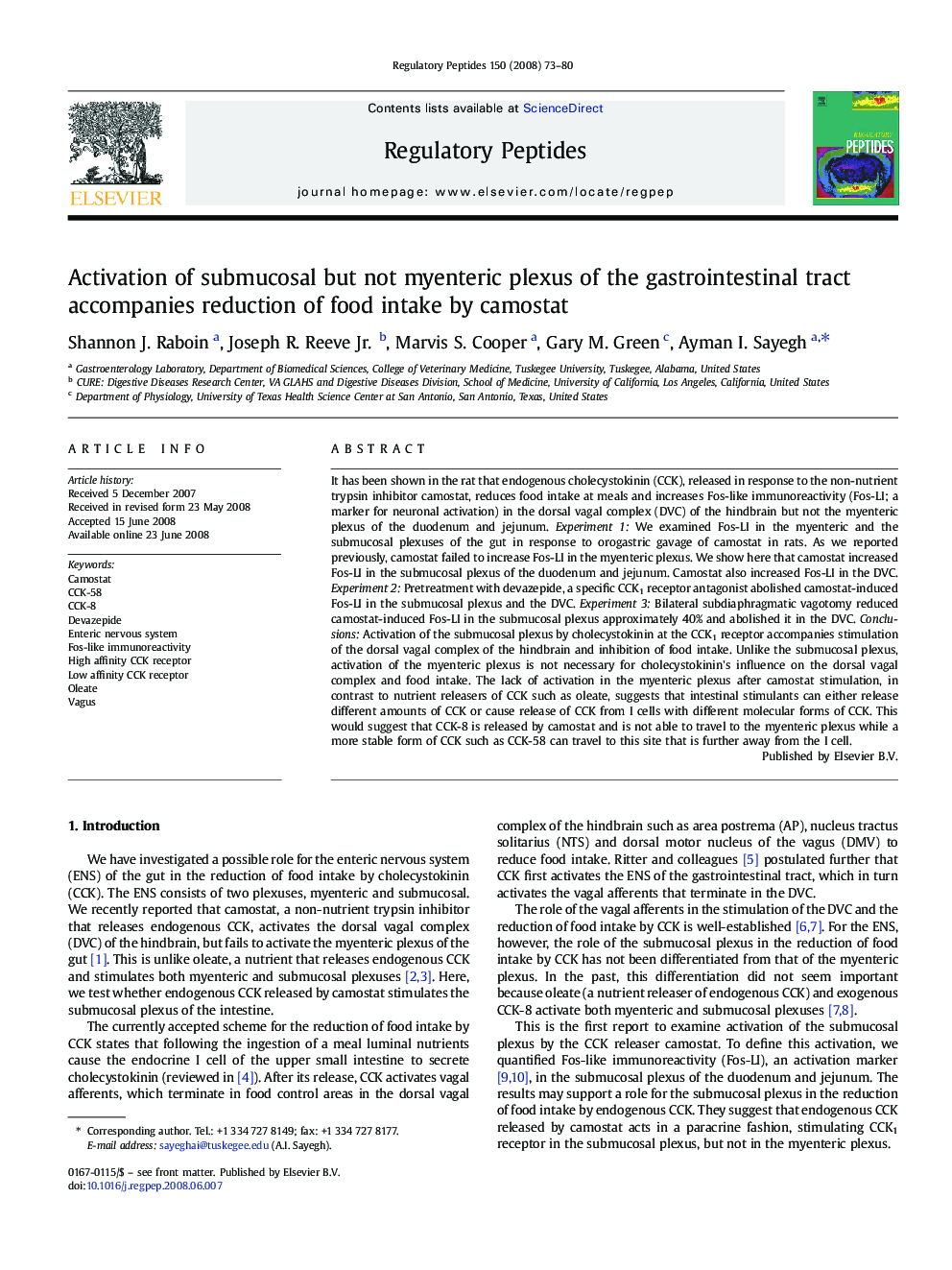| Article ID | Journal | Published Year | Pages | File Type |
|---|---|---|---|---|
| 2023123 | Regulatory Peptides | 2008 | 8 Pages |
It has been shown in the rat that endogenous cholecystokinin (CCK), released in response to the non-nutrient trypsin inhibitor camostat, reduces food intake at meals and increases Fos-like immunoreactivity (Fos-LI; a marker for neuronal activation) in the dorsal vagal complex (DVC) of the hindbrain but not the myenteric plexus of the duodenum and jejunum. Experiment 1: We examined Fos-LI in the myenteric and the submucosal plexuses of the gut in response to orogastric gavage of camostat in rats. As we reported previously, camostat failed to increase Fos-LI in the myenteric plexus. We show here that camostat increased Fos-LI in the submucosal plexus of the duodenum and jejunum. Camostat also increased Fos-LI in the DVC. Experiment 2: Pretreatment with devazepide, a specific CCK1 receptor antagonist abolished camostat-induced Fos-LI in the submucosal plexus and the DVC. Experiment 3: Bilateral subdiaphragmatic vagotomy reduced camostat-induced Fos-LI in the submucosal plexus approximately 40% and abolished it in the DVC. Conclusions: Activation of the submucosal plexus by cholecystokinin at the CCK1 receptor accompanies stimulation of the dorsal vagal complex of the hindbrain and inhibition of food intake. Unlike the submucosal plexus, activation of the myenteric plexus is not necessary for cholecystokinin's influence on the dorsal vagal complex and food intake. The lack of activation in the myenteric plexus after camostat stimulation, in contrast to nutrient releasers of CCK such as oleate, suggests that intestinal stimulants can either release different amounts of CCK or cause release of CCK from I cells with different molecular forms of CCK. This would suggest that CCK-8 is released by camostat and is not able to travel to the myenteric plexus while a more stable form of CCK such as CCK-58 can travel to this site that is further away from the I cell.
